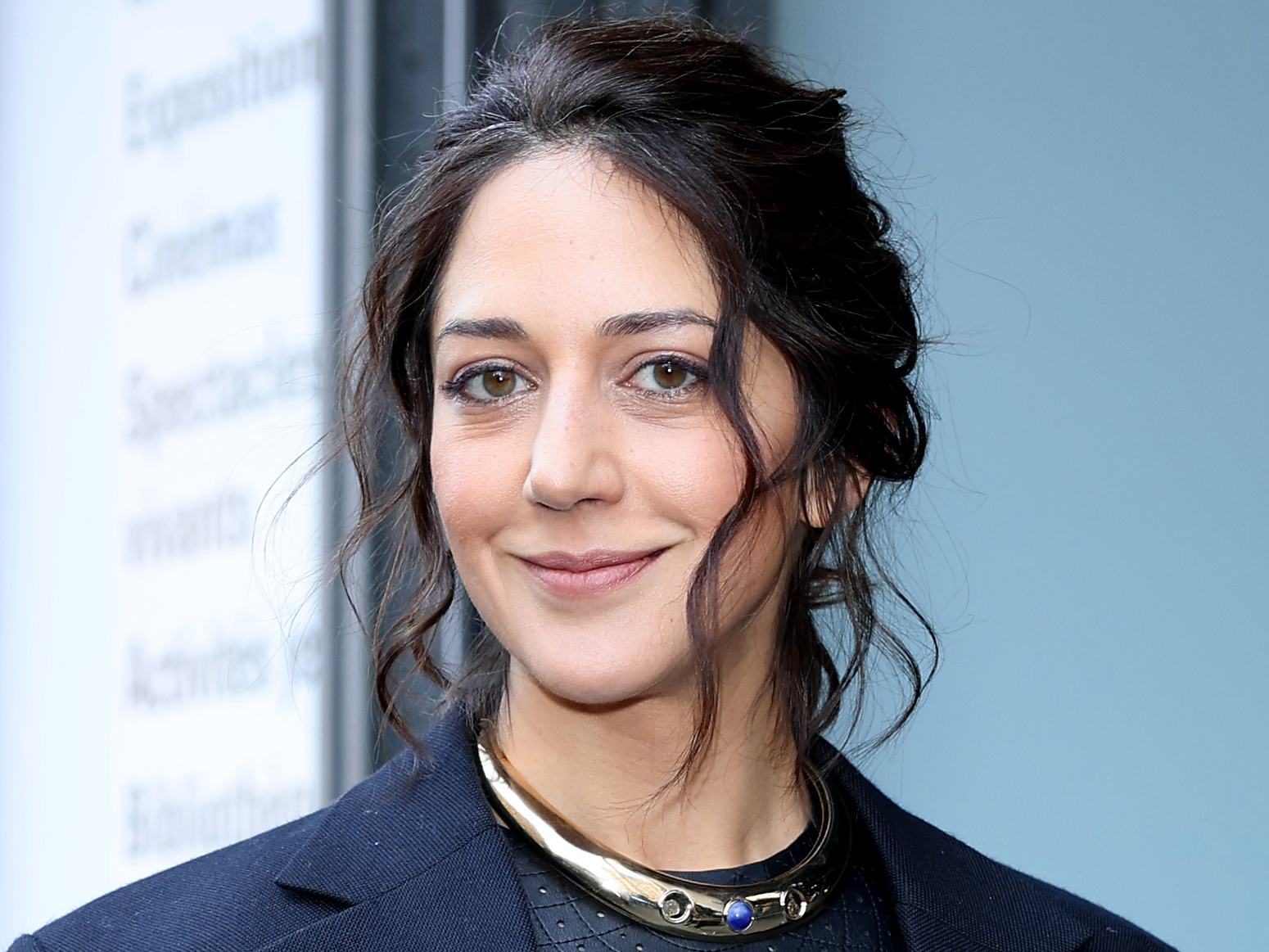
- Film
A Year After her Win in Cannes, Zar Amir Ebrahimi Feels Impelled to tell the Stories of Iranian Women
It has been a year since Zar Amir Ebrahimi, won the Cannes Film Festival Award for Best Actress. And what a year it has been for the 41-year-old Iranian actress, who rose to fame after her performance in Ali Abbasi’s Holy Spider was recognized by the prestigious festival.
“It was a heavy, crazy year and it was very productive,” says Zar Amir Ebrahimi via Zoom from her apartment in Paris.
“At the same time, the revolution in Iran is happening and I am not sure whether I should say that I am lucky to be able to talk about all this or if I am unlucky, because I cannot enjoy my success. I feel sometimes like being in a washing machine. “
In the fall, Holy Spider all of a sudden became even more relevant to our times. The film told the real-life story of the Iranian construction worker Saeed Hanaei (played by Mehdi Bajestani), who was arrested in 2001 for killing 16 prostitutes in Mashad and became a kind of folk hero for religious groups, who idolized him for his stated moral crusade of cleansing the city. Following the uprising in Iran in the fall of 2022, the film took on a new significance, and during the award campaign for Holy Spider, Amir Ebrahimi spoke about the conflict in her country – sympathizing with the women.
“Being awarded at the Cannes film festival is really important for all of us and it is important for me being the first Iranian female to have the honor, “says Amir Ebrahimi about that event. “At the same time we have this uprising of Iranian women, which is something that is close to my heart and mind. I don’t want to see myself as a spokesperson for the whole female generation for our society, but I feel like everything is related.”
The mass protests in Iran happened after the death of Mahsa Amini in police custody in Iran on September 16, 2022. Amini had been accused of having violated Iran’s strict hijab rules, which produced a new spotlight on violence against women in Amir Ebrahimi’s home country. But even before this was the case, the issue was close to Amir Ebrahimi, who had to flee Iran in 2006 because of a leaked tape with private content of a sexual nature. Not only was she humiliated and harassed, she was also facing a prison sentence and 100 lashes for her “crime.”
“Maybe it is just a historic time and I feel like I am also discovering myself,” she says about choosing projects about Iranian and Afghanistan women who are fighting for their rights. “Because I feel I know these stories better than everything else. Shayda and the other four movies I have coming out this year are all related somehow to the Iranian and Afghanistan and women’s situation in these two countries.”
Since her work in Holy Spider, which was also shortlisted for the Oscars in the non-English language category, Amir Ebrahimi has been busy with many projects. She went straight from her success in Cannes to Australia, where she was shooting Iranian-Australian Noora Niasari’s debut feature Shayda, which premiered at Sundance this year.
In Shayda, Amir Ebrahimi plays the title role, a brave Iranian mother who finds refuge in an Australian women’s shelter with her six-year-old daughter Mona (Selina Zahednia) after fleeing an abusive husband, from whom she is attempting to get a divorce.
“I can express myself through these characters and sometimes I think I can overcome my own traumas through these characters. I don’t want to see cinema or art in general in this way, but I put my trauma in these movies and when I see them again, I think that I have something to share with other people. And with the situation we are in in Iran, I have no option, I just have to share.”
In Australia, Shayda is met by a community of women, who are united by the desire simply to have a life free of fear and anxiety. Shayda’s own path to freedom is jeopardized when a judge orders that Mona’s father has a right to see his daughter, and her estranged husband reenters their lives. But she is strong.
That female strength is the common thread in her other projects this year: White Paradise and Opponent and the Berlinale titles My Worst Enemy by Mehran Tamadon and Steffi Niederzoll’s Seven Winters in Tehran.
“I cannot play a victim,” she emphasizes. “If there is not strong character, if there is no meaning to it or a kind of light out of it, I cannot do it. It is very important for me to choose something that can influence someone else and to play a character that can inspire people.”
Amir Ebrahimi is also planning to direct her first feature film based on her own script. The film is called Honor of Persia and is an autobiographical story about her last year in Iran.
“After years and years of thinking about it and writing about it, and having some distance to it, I believe that I have to tell it by myself – and it is not only the social aspect of the story which is interesting anyway, it is one of those stories that has to be told.”
She will also appear at the Cannes film festival this year in order to create more awareness of the situation in Iran among the international film community.
“We are going to organize a panel on Iranian cinema and the situation inside Iran and the diaspora; we want to highlight what can be done and what we demand from our western colleagues and the industry.”

